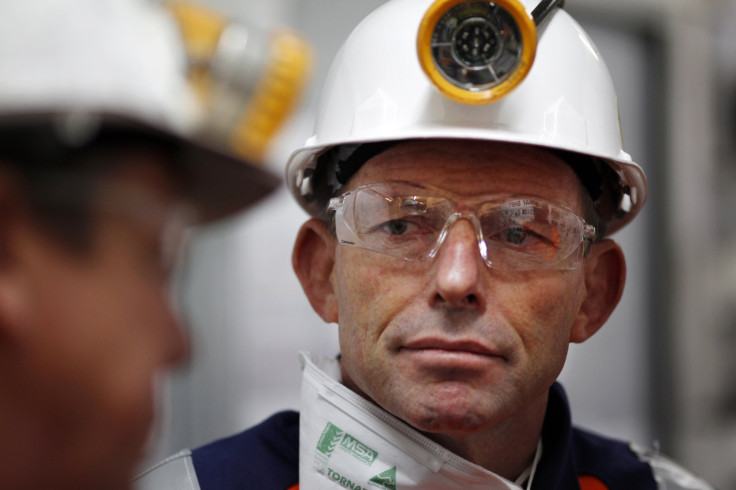Australia sets new ‘economically responsible’ climate target: Abbott

Australian Prime Minister Tony Abbott announced the new plan of the Australian government to cut emissions and promised to provide a consistent economic growth during the process. By 2030, the federal government aims to reduce greenhouse gas emissions by 26 to 28 percent, below 2005 levels as its new climate target plan.
Prior to the announcement, Australia planned to cut emissions by 5 percent by 2020 on its previous target, based on emissions in 2000. The prime minister said the new target to reduce emissions by 26 percent was “a definite commitment,” but the government believes it could reach 28 percent through the policies and expected circumstances during the reduction process.
The announcement comes ahead of an international meeting in Paris in December to discuss a new global climate strategy. Abbott compared the new target range to other countries with “comparable economies,” in which he stated “it is not quite as high as the Europeans at 34 percent on 2005. It is better than the Japanese at 25 percent. It is vastly better than the Koreans at 4 percent. It’s immeasurably better than the Chinese, who will actually increase their emissions by 150 percent between now and 2030.”
To date, a large portion of the country is powered by carbon-polluting coal, and Australia is one of the world's biggest coal exporters. However, the prime minister said Australia had to protect economic growth at the same time as it cuts emissions.
"We have to reduce our emissions... but in ways that are consistent with continued strong growth," he said. "It is very much that everything we do has this in mind: how do we promote jobs and growth... and climate change policy is no different."
The Australian Chamber of Commerce and Industry said the government’s objective balanced “the need for action to contain emissions with the need to minimise damage to jobs and economic growth.” The cost of the new climate target to the economy could equate between 0.2 percent and 0.3 percent of Australia's gross domestic product, or GDP.
Abbott insists tackling climate change should not sacrifice jobs or prosperity, saying "we're not leading but we're certainly not lagging," and that the plan could sustain economic growth. However, climate experts say it's not enough.
The Climate Council, an independent not-for-profit research group, said it was bad for the climate and also for Australia’s international competitiveness, and added the country would stay as the highest per capita polluter among developed countries in 2030.
The council suggests that Australia should cut emissions by 60 percent by 2030 based on 2000 levels, as compared to other countries' climate targets to date. The European Union sets to cut emissions by 40 percent by 2030 compared to 1990 level. Canada's target is 30 percent below 2005 levels by 2030, and the US plans to reduce emissions from the power sector by 32 percent by 2030 compared with 2005 levels.
"These targets are vastly inadequate to protect Australians from the impacts of climate change and do not represent a fair contribution to the world effort to bring climate change under control," said Scientist Tim Flannery from the Climate Council.
Contact the writer at feedback@ibtimes.com.au or tell us what you think below




















